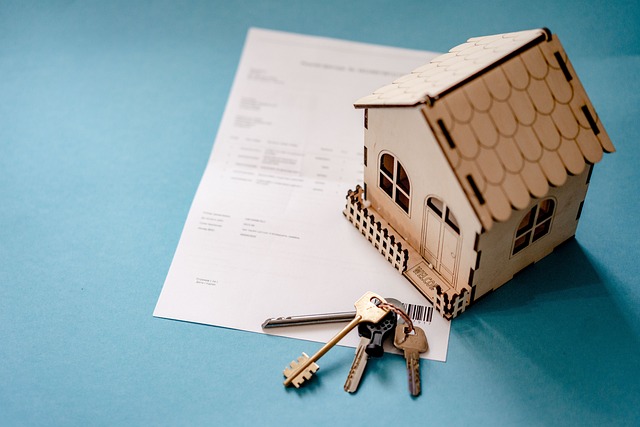In today's competitive startup environment, securing suitable Property Insurance is crucial for protecting physical assets from unforeseen events like natural calamities, theft, or accidental damage. Startups should assess their specific operational needs and risks, compare different insurers' policies, and maintain active communication for claim resolution. Comprehensive property insurance offers financial security, continuity of operations, and resilience against disruptions, ensuring startups can focus on growth without vulnerability.
In today’s dynamic startup landscape, securing your business assets is paramount. Understanding Property Insurance isn’t just about protecting physical spaces; it’s a strategic move to safeguard your startup’s future and financial stability. This comprehensive guide delves into the essential aspects of property insurance, equipping entrepreneurs with knowledge to make informed decisions. From identifying coverage needs to navigating claims, learn how to future-proof your startup against unforeseen events through the power of smart property insurance.
Understanding Property Insurance: A Startup's Necessity

In today’s competitive startup landscape, navigating the complexities of business operations is paramount. Among the many crucial considerations, securing appropriate property insurance stands out as a fundamental step for any budding enterprise. Property insurance serves as a safety net, safeguarding startups from potential financial disasters stemming from unforeseen events such as natural calamities, theft, or accidental damage to their assets.
Understanding property insurance isn’t just about knowing what coverage options are available; it’s about recognizing the unique risks specific to your startup’s environment. Whether you’re operating out of a bustling co-working space, a laboratory, or a retail store, each location presents distinct challenges. By comprehending these risks and tailoring your policy accordingly, startups can ensure their physical assets—from equipment and inventory to office spaces—are adequately protected, enabling them to focus on growth and innovation without the constant shadow of financial vulnerability.
Identifying Risks: What Needs Coverage?

For startups, identifying risks is a critical step in navigating an uncertain business landscape. Among various concerns, property insurance stands out as a crucial component of risk management. This type of coverage safeguards physical assets, such as office spaces, equipment, and inventory, which are often the backbone of a startup’s operations. Without adequate property insurance, businesses run the risk of incurring substantial financial losses in case of damage or theft.
When considering what needs coverage, startups should assess their specific risks and operational requirements. This may include protection against natural disasters like fires, floods, or earthquakes, as well as liability coverage for unforeseen events that could lead to property damage or personal injuries on premises. Additionally, business interruption insurance can provide financial support during periods when operations are halted due to insured events, ensuring stability and continuity.
Types of Property Insurance for Startups

Startups, with their innovative spirit and ambitious goals, often require robust protection for their physical assets and operations. This is where property insurance steps in as a cornerstone of risk management. There are several types tailored to meet the unique needs of emerging businesses.
One common type is general liability insurance, which covers a wide range of risks associated with property damage and personal injury on your premises. This is essential for startups occupying physical spaces, whether it’s an office, warehouse, or retail store. Additionally, business interruption insurance provides financial protection during unforeseen events that halt operations, ensuring businesses can recover quickly. For startups dealing with valuable equipment and inventory, property and inventory coverage offers peace of mind by insuring against theft, damage, or loss.
How to Choose the Right Policy

When selecting a property insurance policy for your startup, it’s crucial to consider several factors to ensure adequate protection. Start by assessing the specific needs of your business and the value of your physical assets, including inventory, equipment, and real estate. Different policies cater to various risks, from natural disasters to theft or vandalism, so identify the potential hazards relevant to your operations.
Research different insurance providers and their offerings. Compare policy coverage, limits, deductibles, and exclusions. Opt for a policy that offers comprehensive protection tailored to startups, addressing unique business risks. Review customer reviews and seek recommendations from industry peers to make an informed decision. Remember, the right property insurance policy should provide financial security, peace of mind, and help your startup weather unexpected events.
Key Considerations in Policy Selection

When selecting a property insurance policy for your startup, several key considerations come into play. Firstly, assess the specific needs and risks associated with your business operations. This includes evaluating the type and value of property you’re insuring, as well as any specialized assets or equipment that are crucial to your startup’s success. For instance, if your startup operates out of a unique co-working space with customizable workstations, ensure the policy covers these specific items.
In terms of policy selection, weigh the different coverage options available. General property insurance typically covers basic perils like fire and theft, but startups may require additional protections against more niche risks. Consider options for business interruption coverage, which can provide financial stability during unforeseen events that halt operations, or liability protection in case of accidents or property damage that leads to legal claims. Compare policies based on their terms, exclusions, deductibles, and overall cost to find the best fit for your startup’s unique circumstances.
The Claims Process: What to Expect

When it comes to property insurance claims, startups should expect a straightforward yet thorough process. The journey begins with reporting the incident or damage to your insurer, providing all relevant details and documentation. This may include photos, receipts for repairs, or even police reports in case of theft or vandalism. After this initial step, the insurance company will assess the claim, verify the information, and determine if the loss is covered under your policy.
The claims adjuster will then provide a quote for the repair or replacement costs, along with an estimated timeline for settlement. Startups should actively communicate with their insurer throughout this process, ensuring all questions are answered and all necessary paperwork is submitted promptly. This collaborative effort helps ensure a swift resolution, allowing businesses to get back on track after unexpected events disrupt their operations.
Common Mistakes Startups Make with Property Insurance

Many startups, excited about their innovative ideas and rapid growth, often overlook an essential aspect of risk management—property insurance. This can lead to significant financial setbacks in case of unforeseen events. A common mistake is assuming that their business content is adequately covered under a basic general liability policy, which primarily focuses on bodily injury and property damage liabilities. Property insurance specifically protects against physical losses or damages to the startup’s assets, including office space, equipment, inventory, and technology.
Another blunder is waiting until a crisis strikes before acquiring coverage. Startups should view property insurance as an ongoing expense necessary for business continuity. Failure to do so may result in being denied claims or facing higher premiums during emergencies. Additionally, some startups mistakenly believe that their lease agreements provide sufficient protection. However, these agreements often protect the landlord and may not offer the startup the comprehensive coverage they need to safeguard their investments.
Case Studies: Successful Property Insurance for Startups

In the dynamic landscape of startups, protecting assets is as crucial as innovating. Many successful property insurance cases highlight this need. For instance, a tech startup based in a bustling metropolis faced unexpected challenges when their office space was damaged due to a fire. Thanks to a comprehensive property insurance policy, they were not just able to cover immediate repair costs but also secured funds for relocation and business interruption during the reconstruction period. This ensured their operations remained steady, demonstrating the value of insurance in providing financial stability amidst unforeseen events.
Another startup, specializing in eco-friendly products, learned the hard way about the importance of property insurance when their warehouse was struck by severe weather, leading to significant inventory loss. Their insured assets included not just physical goods but also the intellectual property and brand reputation built over years. With property insurance, they were able to replace stock, maintain supply chain integrity, and continue serving customers without the usual hiccups, showcasing how insurance can be a game-changer in times of crisis.
Future-Proofing Your Startup's Property Coverage

Protecting your startup’s physical assets is a crucial step in future-proofing your business. Property insurance isn’t just about replacing what you have in case of damage; it’s about ensuring your company can continue operations during unexpected events like natural disasters, theft, or vandalism. Consider choosing a policy with coverage for business interruption, which provides funds to keep your startup afloat while repairs are underway.
Additionally, assess your specific risks and tailor your property insurance accordingly. This might include optional coverages for valuable equipment, inventory, or even cyber liability protection if your startup relies heavily on digital operations. By staying proactive and evaluating your needs, you can select a property insurance policy that offers comprehensive protection, giving you peace of mind as your startup grows and evolves.
